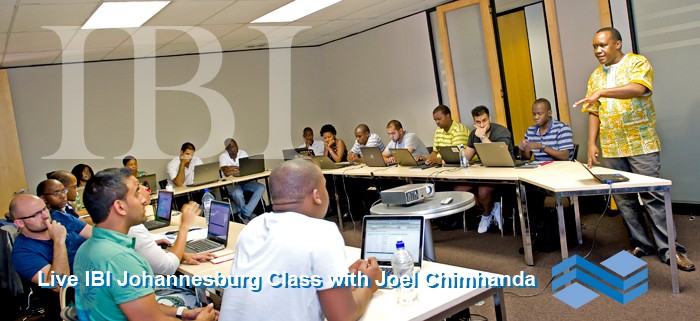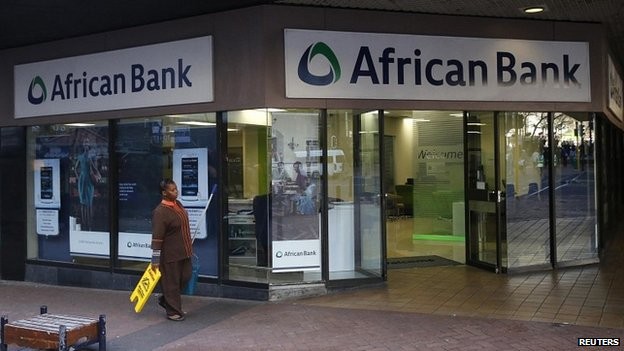Investment Banking South Africa
Post on: 16 Март, 2015 No Comment

While everyone knows about emerging markets like China. India. and the Middle East. theres not as much awareness of South Africa.
But it would be a mistake to ignore it, because its an interesting market in its own right and its quite a bit different from anywhere else in the world.
So lets get started.
In The Beginning
Q: Can you tell us about your background?
A: Sure. I owned a small engineering and IT business for a few years before making the move into finance. Back in undergraduate I had studied Computer Science and saw many of my classmates go into finance, but I was interested in starting my own business and did so with another student.
A few years into it, I got interested in equities trading but also realized that I would need an MBA to move into a new industry .
5 years after starting the business, I sold it and started my MBA program. I thought about going to a top 10 business school elsewhere in the world, but settled on something local instead.
I gave up some networking opportunities by doing that, but it didnt matter much because plenty of banks came to recruit at our school plus, my program was only 1 year so my opportunity cost was lower.
I interviewed around and won an offer at an investment bank that had recruited at our school.
Q: Whats the finance industry in South Africa like? How is it different from the US and Europe?
A: The main difference is the types of clients we work with:
- They are generally below investment grade. though thats not always true for multinationals and government-linked entities.
- Theyre almost always based in South Africa or on the African continent and have significant operations here.
Beyond that, the products are much simpler: convertibles were only introduced in 2007, and credit default swaps still do not exist.
We also have some unique products you wont find anywhere else, such as those used to fund BEE (Black Economic Empowerment) deals.
Banks have flatter structures and theres not much of a ladder – go-getters thrive and get deals, while those looking for a clear career path are often frustrated .
Even though I went for the MBA degree, its not too common among bankers here – most are either CAs (Chartered Accountants) or have a CFA combined with some type of mathematical degree.
And then a fair number of bankers dont have finance degrees at all – they come from other industries and are simply good at making rain.
M&I Note: Once again, despite my bias against the CFA it may be more useful in emerging markets such as South Africa.
Q: What about the recruiting process?
Is it similar to the US with resume drops and then multiple rounds of interviews, or closer to Europe with assessment centers and in-person testing/presentations ?
A: Overall its closer to the US but interviews tend to be less formal and theyre more about fit rather than technical questions.
Interviewers emphasize your undergraduate major and experience, and theres a heavy bias in favor of those with accounting backgrounds. They view Big 4 experience very favorably here.
Usually you go through 3 or 4 rounds of interviews over several weeks – many of my friends spent around 3 months interviewing before getting an offer, and it took me around 6 months.
Recruiting take longer not because interviews are more rigorous, but because of the pressure to hire employment equity candidates. Right now there arent even enough candidates to fill the required roles.
If youve performed well at a top university here you stand a good shot of landing an offer but just like other markets, nothing is guaranteed.
Q: How do most people start working in finance in South Africa? Is it mostly locals or are they transferring in from elsewhere?
A: Its mostly local South Africans who enter banking from university, usually studying commerce or a math-based field. Sometimes they also come in from accounting.
The employment and education demographics are heavily skewed toward those who benefited from Apartheid due to the countrys history – many others dont have the required education.
Were starting to get more people from other English-speaking countries such as the US, UK, and Australia, as well as South Africans returning home after working abroad.
Lately a lot of Africans from other countries like Nigeria, Ghana, and Zimbabwe have been coming here as well.
Wheeling & Dealing

Q: What types of deals are most common in South Africa?
A: The most common deals are working capital or property finance-related. with some advisory and corporate finance thrown in.
Depending on the market, there might also be leveraged finance or mezzanine finance deals – preferred stock issuances and BEE funding always slow down in recessions, as does anything private equity-related.
The industries themselves are diversified – parastatals. retailers, manufacturers, automotive, mining, telecoms, financial services, and so on. Technology is the only industry here with very little lending or deal activity, because the risk-return is poor.
Q: Can you describe the culture, pay, and lifestyle? Is it more like the US with extremely long hours but higher pay, or more like other regions such as Australia with better hours but also lower pay?
A: The hours are probably closer to what you would find in Australia, although a lot of that is determined by your group. If youre working market hours – like a trader – then youre there from 7 AM to 5 PM with no weekends.
Investment bankers work weekends and leave the office around 10 PM quite often, but all-nighters and working to the point of exhaustion are not as common as they are in the US.
Its still banking, so anyone in corporate finance / M&A is told not to plan anything in advance, and 16-18 hour days are to be expected.
Q: And what about the pay?
A: Similar to other emerging markets. its lower than the US in absolute dollar terms but its higher relative to the cost of living.
You can live a very good life in South Africa on what you make in finance – though you will encounter the same issues as in other developing countries (e.g. there is high income disparity, radically different classes, and so on).
Q: Do you hang out with your co-workers? Or does everyone do their own thing?
A: Co-workers are sociable and people hang out together quite a lot. My bank also puts on a lot of company-sponsored events and sports, and we even have a sponsored bar.
Theres some rivalry between banks here, but usually people from different banks hang out together at the same places.
Q: What about exit opportunities? Do people stay in South Africa or move elsewhere?
A: Many bankers move on to executive finance roles in industry, sometimes leaving the country and going to the UK, Europe, or Australia.
Since there are so few qualified individuals here, theres a lot of inter-bank hopping – similar to other emerging markets. there are fewer buy-side firms. so the mythical exit opportunity doesnt get as much hype here.
The one exception is the hedge fund / prop trading industry . which tends to attract a lot of ex-traders coming from banks.
If youre already in a front-office role, moving up is a different story – it can be easier than in developed markets, but as I mentioned before theres also less of a path and its heavily dependent on your results.
Q: Great, thanks for your time.
A: No problem.














